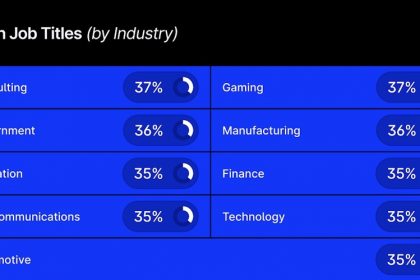As market digitalization accelerates, customer expectations are reshaping how we shop and pay, blending online and offline experiences into unified commerce. Digital wallets are rising in popularity, automated systems promise to simplify transactions, and innovations like tokenization, biometric authentication, and AI-driven fraud detection are enhancing security.
The future of payments will hinge on consumer acceptance and the seamless integration of these new technologies into everyday life.
Customer expectations are rising quickly as the market digitalization speeds up. The way we shop and pay for goods and services is changing as the online and offline worlds are increasingly merging into a holistic shopping experience. The age of “unified commerce” is being driven primarily by this transformation in payment habits and expectations.
— Flexa (@FlexaHQ) August 15, 2024
Now, those buying a product or service may do so through various channels—online, mobile, or the traditional in-store experience. Customers order from the comfort of their own homes and pick up the goods in the shop. They may hear about a service in person but book online later. Or they pay in-store but want the convenience of having their purchase delivered (and often set up) in their home.
Retailers are being forced to link their online and offline sales channels to retain loyal customers. Unified commerce is the new name of the game.
Digital Wallets and Card Payments on the Rise
Changing shopping habits go hand in hand with new payment methods. Younger generations, in particular, are showing a preference for paying with digital wallets, also known as “e-wallets.” These digital wallets enable instantaneous electronic transactions without physical cash or cards. The most popular digital wallets include Apple Pay, Google Wallet (Google Pay), Klarna, Amazon Pay, and PayPal.
Technically, wallets are primarily a place to securely store different funding sources – so users don’t have to enter their card details on a terminal. Users can link their debit or credit card and make online and offline payments at the point of sale (POS) using their smartphone. A traditional debit, credit card, or SEPA direct debit remains the basis for these payment transactions.
SWEEEESH 🍃Did you hear that? 👀
It was the sound of your SEPA arriving faster with N26!
When you need to pay ASAP, send an instant transfer to any bank accounts and have it arrive in seconds.
Read more about it here: https://t.co/QdAlIi6BoT#iN26 #Bank #finance #sepa pic.twitter.com/UVQhpVUeh0— N26 (@n26) August 31, 2021
As a result, wallet providers are caught up in fierce competition for consumer preference, investing heavily in features and capabilities that will help them earn the spot of preferred payment method. An amusing anecdote illustrates this competition: Klarna, once seen primarily as the leading invoice purchase provider, is now venturing into the wallet space.
In-store habits are also changing. In central and southern Europe, nearly one-third of all retail sales are still made with coins and bills. But the trend is clearly in favor of cards, especially for larger amounts.
As trends continue to show, Europeans prefer to use their debit cards over traditional payments. Only in the US are credit cards almost on par with debit cards. In addition, more and more people are paying in shops using their smartphones or other devices, i.e., using mobile wallets such as ApplePay.
A Digital Euro Would Revolutionize Payments
The shift in consumer preference brings us to a topic that no article on payment behavior can avoid at the moment: the digital euro.
If the European Central Bank (ECB) has its way, the digital euro could become a reality by 2028. Payments would be made by smartphone or chip card, and consumers could exchange cash for digital euros at ATMs and vice versa. Online payments with the digital euro would be directly linked to a bank account; for offline use, money would have to be loaded into a special wallet in advance.
The idea behind the digital euro is to make payments simpler, faster, and more secure, as well as to strengthen the autonomy and monetary sovereignty of the euro area. The ECB also expects the digital euro to play a role in spurring innovations such as autonomous cars that can refuel themselves or a fridge that can order and pay for milk at the supermarket.
Privacy Issues Have #Germany Concerned About the Possible Implementation of a Digital #Euro https://t.co/OjhJ9Ubmck
— Bitcoin.com News (@BTCTN) August 19, 2024
I believe this initiative’s success will largely depend on consumer acceptance, not on the technology itself. While infrastructure and merchant acceptance are crucial, the real test will be how quickly and widely consumers adapt to using the digital euro for their transactions.
For this to happen, the digital euro must be cheap to use, secure, risk-free, easy to utilize, and convenient. As mentioned above, the last two criteria, in particular, could be difficult to achieve given the increasing popularity of wallets.
Trust Is Key to Change
Speaking of security, the best new ideas for making online payments more secure include tokenization, multi-factor authentication, and the use of AI to improve fraud detection.
Tokenization replaces sensitive card data with a unique code, making it harder for hackers to steal data. Multi-factor authentication, such as fingerprint or facial recognition, provides an additional layer of security. Real-time AI-based fraud detection is also making great strides, helping identify fraud and reject certain payments preemptively.
🔍AI fraud detection uses machine learning to identify patterns and anomalies in large datasets, spotting potential fraud.
💎With continuous learning, these algorithms improve over time, enhancing #security and safeguarding transactions.
📂Stay protected with #AI pic.twitter.com/BYiBlUf0LM
— Inqubeta (@Inqubetahq) June 8, 2024
In retail, the trend is towards more automated systems. Biometric authorization methods such as fingerprints and facial recognition could make physical payment devices obsolete.
Traditional checkouts are being replaced by self-service checkouts that automatically collect payments using weight sensors or image recognition. Technologies such as near-field communication (NFC) or QR code payments promise to make the payment process faster, more secure, and more convenient.
Soon, we may no longer have to queue up at the checkout because everything will be automatically debited from our account as we leave the shop—or the fridge at home will do it for us.
The Future of Payments
Connected retail that offers convenience, security, and choice, watches and rings that replace coins and notes at the checkout, and a fridge that reorders groceries—the future of payments is undoubtedly exciting.
At the same time, the success of these advancements will rely on their ability to seamlessly integrate into our daily lives, ensuring that consumers feel secure and empowered in their financial interactions. The rapid changes in consumer payment preferences are set to redefine how we perceive and interact with money, heralding a new era of digital convenience and security.
As market digitalization accelerates, customer expectations are reshaping how we shop and pay, blending online and offline experiences into unified commerce. Digital wallets are rising in popularity, automated systems promise to simplify transactions, and innovations like tokenization, biometric authentication, and AI-driven fraud detection are enhancing security.
The future of payments will hinge on consumer acceptance and the seamless integration of these new technologies into everyday life.
Customer expectations are rising quickly as the market digitalization speeds up. The way we shop and pay for goods and services is changing as the online and offline worlds are increasingly merging into a holistic shopping experience. The age of “unified commerce” is being driven primarily by this transformation in payment habits and expectations.
— Flexa (@FlexaHQ) August 15, 2024
Now, those buying a product or service may do so through various channels—online, mobile, or the traditional in-store experience. Customers order from the comfort of their own homes and pick up the goods in the shop. They may hear about a service in person but book online later. Or they pay in-store but want the convenience of having their purchase delivered (and often set up) in their home.
Retailers are being forced to link their online and offline sales channels to retain loyal customers. Unified commerce is the new name of the game.
Digital Wallets and Card Payments on the Rise
Changing shopping habits go hand in hand with new payment methods. Younger generations, in particular, are showing a preference for paying with digital wallets, also known as “e-wallets.” These digital wallets enable instantaneous electronic transactions without physical cash or cards. The most popular digital wallets include Apple Pay, Google Wallet (Google Pay), Klarna, Amazon Pay, and PayPal.
Technically, wallets are primarily a place to securely store different funding sources – so users don’t have to enter their card details on a terminal. Users can link their debit or credit card and make online and offline payments at the point of sale (POS) using their smartphone. A traditional debit, credit card, or SEPA direct debit remains the basis for these payment transactions.
SWEEEESH 🍃Did you hear that? 👀
It was the sound of your SEPA arriving faster with N26!
When you need to pay ASAP, send an instant transfer to any bank accounts and have it arrive in seconds.
Read more about it here: https://t.co/QdAlIi6BoT#iN26 #Bank #finance #sepa pic.twitter.com/UVQhpVUeh0— N26 (@n26) August 31, 2021
As a result, wallet providers are caught up in fierce competition for consumer preference, investing heavily in features and capabilities that will help them earn the spot of preferred payment method. An amusing anecdote illustrates this competition: Klarna, once seen primarily as the leading invoice purchase provider, is now venturing into the wallet space.
In-store habits are also changing. In central and southern Europe, nearly one-third of all retail sales are still made with coins and bills. But the trend is clearly in favor of cards, especially for larger amounts.
As trends continue to show, Europeans prefer to use their debit cards over traditional payments. Only in the US are credit cards almost on par with debit cards. In addition, more and more people are paying in shops using their smartphones or other devices, i.e., using mobile wallets such as ApplePay.
A Digital Euro Would Revolutionize Payments
The shift in consumer preference brings us to a topic that no article on payment behavior can avoid at the moment: the digital euro.
If the European Central Bank (ECB) has its way, the digital euro could become a reality by 2028. Payments would be made by smartphone or chip card, and consumers could exchange cash for digital euros at ATMs and vice versa. Online payments with the digital euro would be directly linked to a bank account; for offline use, money would have to be loaded into a special wallet in advance.
The idea behind the digital euro is to make payments simpler, faster, and more secure, as well as to strengthen the autonomy and monetary sovereignty of the euro area. The ECB also expects the digital euro to play a role in spurring innovations such as autonomous cars that can refuel themselves or a fridge that can order and pay for milk at the supermarket.
Privacy Issues Have #Germany Concerned About the Possible Implementation of a Digital #Euro https://t.co/OjhJ9Ubmck
— Bitcoin.com News (@BTCTN) August 19, 2024
I believe this initiative’s success will largely depend on consumer acceptance, not on the technology itself. While infrastructure and merchant acceptance are crucial, the real test will be how quickly and widely consumers adapt to using the digital euro for their transactions.
For this to happen, the digital euro must be cheap to use, secure, risk-free, easy to utilize, and convenient. As mentioned above, the last two criteria, in particular, could be difficult to achieve given the increasing popularity of wallets.
Trust Is Key to Change
Speaking of security, the best new ideas for making online payments more secure include tokenization, multi-factor authentication, and the use of AI to improve fraud detection.
Tokenization replaces sensitive card data with a unique code, making it harder for hackers to steal data. Multi-factor authentication, such as fingerprint or facial recognition, provides an additional layer of security. Real-time AI-based fraud detection is also making great strides, helping identify fraud and reject certain payments preemptively.
🔍AI fraud detection uses machine learning to identify patterns and anomalies in large datasets, spotting potential fraud.
💎With continuous learning, these algorithms improve over time, enhancing #security and safeguarding transactions.
📂Stay protected with #AI pic.twitter.com/BYiBlUf0LM
— Inqubeta (@Inqubetahq) June 8, 2024
In retail, the trend is towards more automated systems. Biometric authorization methods such as fingerprints and facial recognition could make physical payment devices obsolete.
Traditional checkouts are being replaced by self-service checkouts that automatically collect payments using weight sensors or image recognition. Technologies such as near-field communication (NFC) or QR code payments promise to make the payment process faster, more secure, and more convenient.
Soon, we may no longer have to queue up at the checkout because everything will be automatically debited from our account as we leave the shop—or the fridge at home will do it for us.
The Future of Payments
Connected retail that offers convenience, security, and choice, watches and rings that replace coins and notes at the checkout, and a fridge that reorders groceries—the future of payments is undoubtedly exciting.
At the same time, the success of these advancements will rely on their ability to seamlessly integrate into our daily lives, ensuring that consumers feel secure and empowered in their financial interactions. The rapid changes in consumer payment preferences are set to redefine how we perceive and interact with money, heralding a new era of digital convenience and security.







